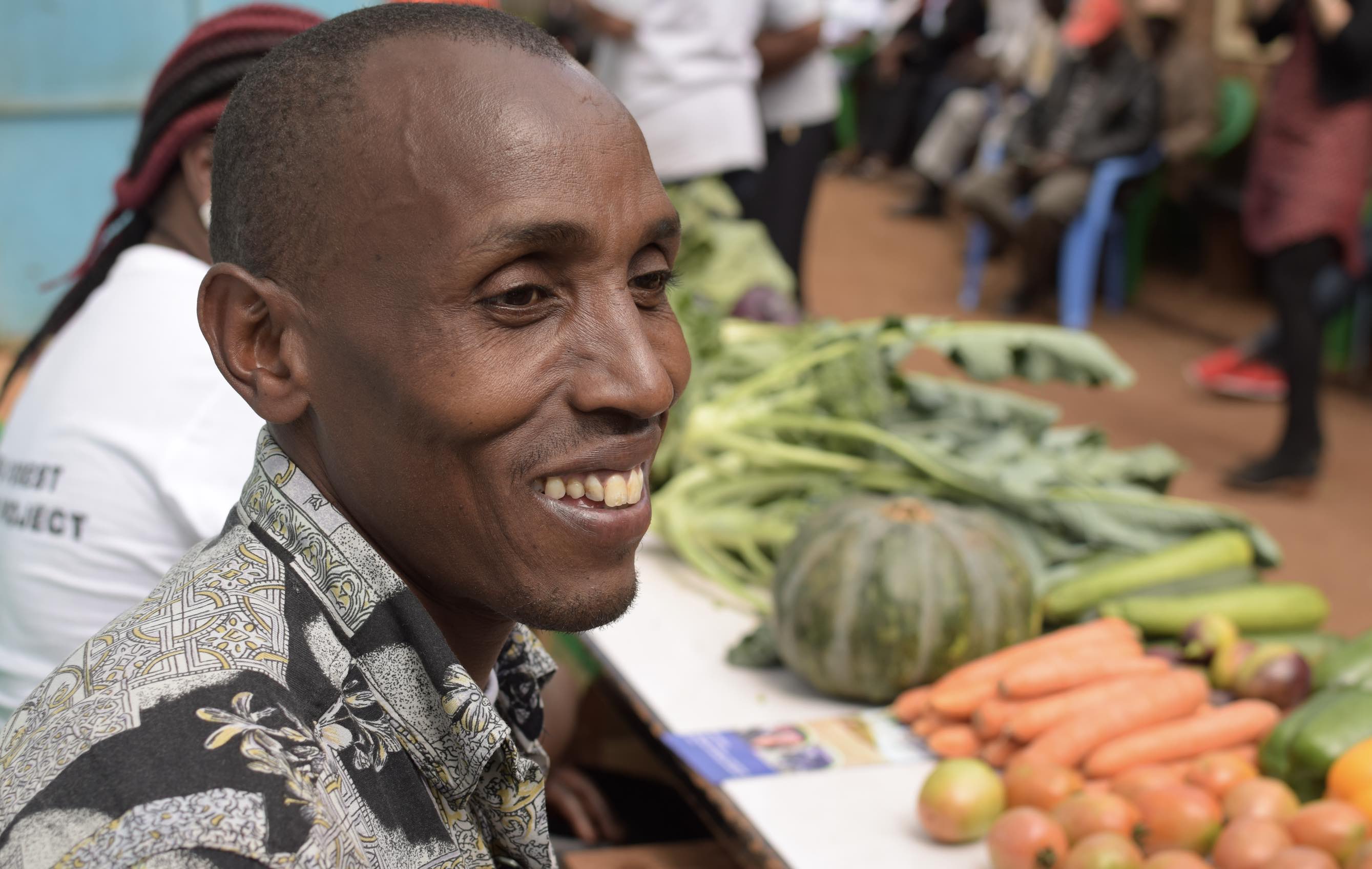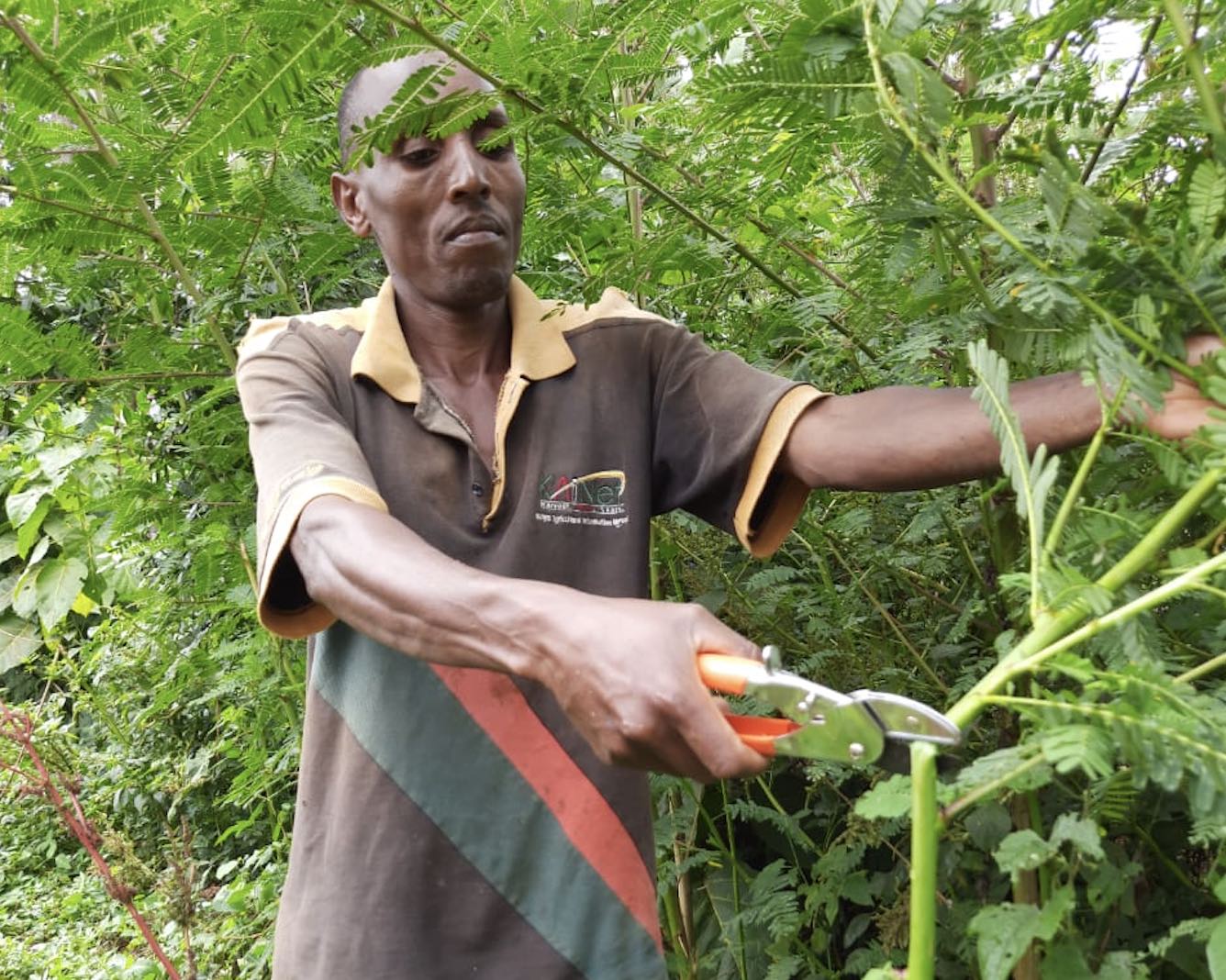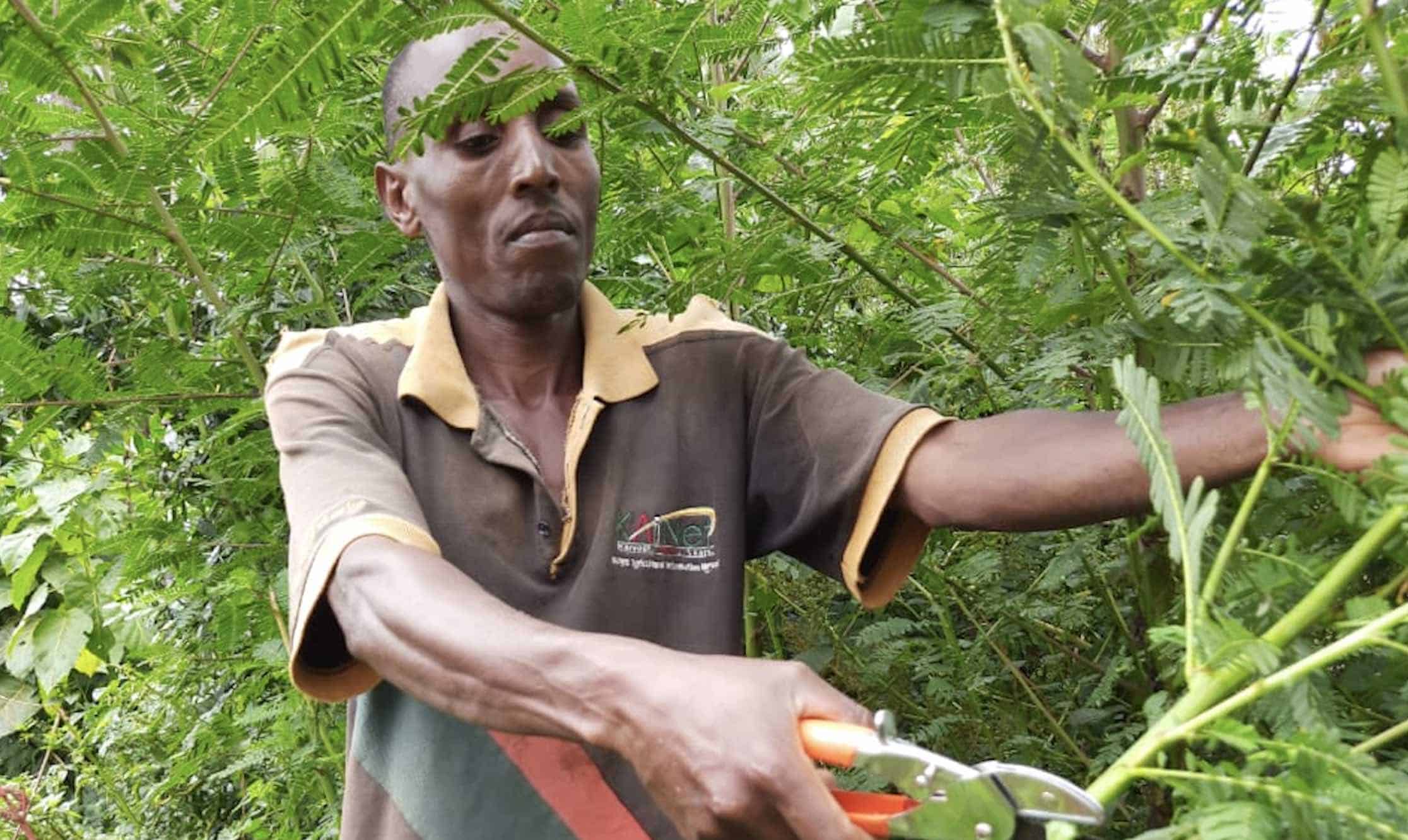“I had no idea what a Forest Garden was or the outcome of the four-year course,” he recalls.

A Forest Garden is an agroforestry system that protects and repairs degraded farmland and makes farmers less vulnerable to unexpected challenges like flooding or pests. TREES staff work with local leaders to identify farmers who are working on degraded land and stand to gain the most from agroforestry training. Simon and other farmers who have employed monocrop agriculture for generations have very little nutrients left in their soil. The Forest Garden and the training they receive from TREES staff enables them to revitalize their land and support themselves and their families.
“After the practical training and dedication I emerged one of the best farmers in my area within the first year,” Simon says.
Farmers go through four years of training, but, much like Simon, they often see their land start to change for the better in just a matter of months. With thousands of trees and dozens of species growing in the Forest Gardens, the income opportunities are life changing.

Simon is a known vegetable vendor in his community, selling tomatoes, cabbages, capsicum, kales, and indigenous vegetables. He learned how to sustainably grow and harvest firewood, he sells Calliandra fodder to other livestock farmers, and he sells chickens. He also maintains an orchard of fruit trees including pawpaw, mangoes, and avocados. Simon’s Forest Garden is comfortably feeding his family while providing several streams of income year round. This has made Simon’s lifelong dream a reality.
“Initially I had no hope of educating my children, my wish had always been to see my children excel in education and my happiness has been seeing them pursue education smoothly without lack of school fees and essentials. Through my Forest Garden sales I have achieved this life goal as all my children are happily learning,” he says.

More than five years after first joining Trees for the Future and more than a year after he formally graduated from the program, Simon uses his Forest Garden training on a regular basis. And although he is a program graduate, he still sees plenty of TREES staff and current farmers when they stop by his farm to see what Forest Gardens make possible.
“Many farmers in the [current] project come for advice here and my Forest Garden tells it all,” he says. “It’s my joy to see adopters change their lifestyles and take farming as a business unlike initially when they practiced subsistence farming.”
Farmers like Simon receive Forest Garden training and resources through donor support. Donate to Trees for the Future today and help more farmers establish Forest Gardens.
